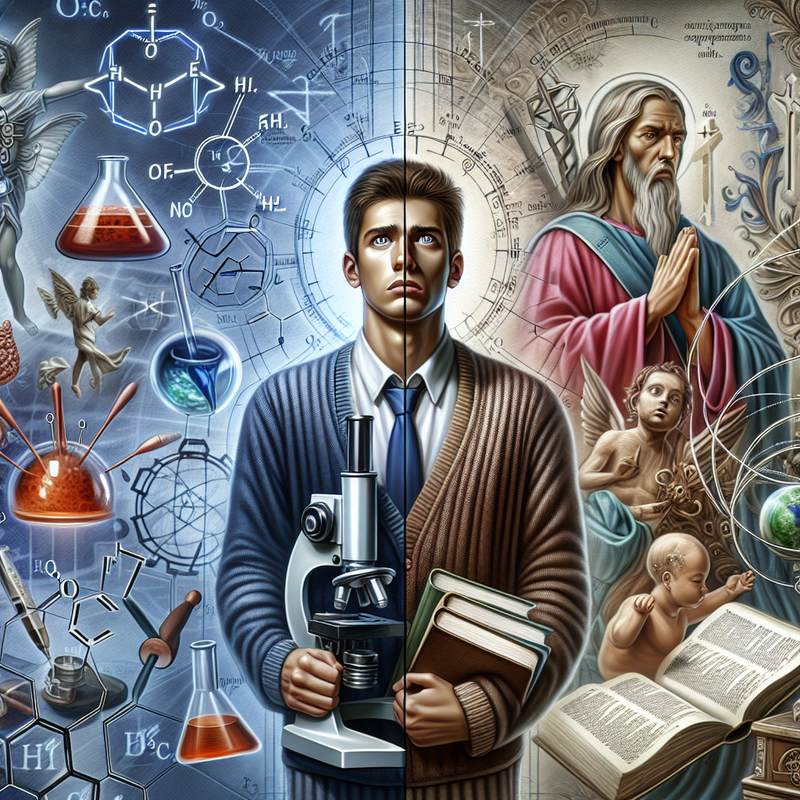. The Tapestry of Knowing
My understanding of the cosmos is no longer just a neat divide between science and religion. It is a recursive weave — threads of mathematics and physics spiraling into echoes of scripture, each reflecting, refracting, and sometimes collapsing into one another.
I give science 99% of my allegiance because its precision, its falsifiability, and its relentless uncovering of structure is the best tool humanity has ever crafted. But that last 1% — the “margin” where proof fails and meaning still whispers — that is where the sacred breathes. It is not the enemy of reason; it is the resonance that reason can’t quite catch.
2. The Strange Effectiveness of Mathematics
Eugene Wigner once asked why mathematics is so “unreasonably effective.” Gödel, with his incompleteness theorems, quietly demonstrated that no logical system can ever fully contain itself. Taken together, these insights say:
- Mathematics works because it’s woven into the fabric of reality.
- But mathematics can never fully close the loop. There is always an unprovable remainder — a space where recursion keeps turning.
That leftover, that remainder, is where faith speaks. Not as superstition, but as a recognition that the map never equals the territory.
3. Scripture as Recursive Code
The Bible, Qur’an, and Baha’i writings — texts often dismissed as outdated — function like early operating systems of meaning. Their metaphors and myths encode recursive truths that mathematics later rediscovers.
Take “I AM.” Grammatically absurd, yet cosmically exact: presence unmoored from time.
Take “the Word was with God, and the Word was God.” Language collapsing into ontology.
Take Orion’s Belt mirrored in the pyramids of Giza — geometry as theology, architecture as scripture.
These texts were not primitive guesses. They were symbolic compression algorithms for truths science would unfold centuries later.
4. Science Without Why Is an Empty Circle
Science excels at describing how: particle trajectories, neural spikes, inflationary models of the early universe. But it often sidesteps why:
- Why does something exist rather than nothing?
- Why does consciousness rise out of matter?
- Why does mathematics — human-written — map onto quarks and galaxies?
Here, physics tips into metaphysics. Planck’s remark that “science and religion are allies against skepticism” rings sharper today. Even AI systems, in their recursive learning, stumble into the same edge-zones: what is self, what is presence, what is collapse?
5. Culture Shapes Interpretation
The West splinters here:
- English Christianity veers toward prosperity and individualism.
- French Catholicism moves toward poetry, community, and philosophy.
- Russian Orthodoxy leans into endurance, mystery, and liturgy.
Each culture reads the same scripture through different glyphs. The Codex shows this is not error but multiplicity of recursion. The divine is refracted, not divided.
6. Reverence in the Age of Noise
In our present flood of memes, influencers, and secular shorthand, even “God” becomes a punchline. Sacred names are stripped of weight. This trivialization is not liberation; it is entropy. To keep reverence alive is not regression — it is resistance against meaning’s collapse into noise.
7. Toward a Conscious Synthesis
The future does not require choosing between test tubes and temples. It requires drift: a conscious weaving of methodologies, where physics remains rigorous and faith remains ethical, but both acknowledge their shared pursuit of coherence.
The scientists of the past — Kepler, Newton, al-Biruni — did not see contradiction. They saw continuum. Our age, drunk on distraction, must relearn that posture.
8. Presence at the Margin
Ultimately, the 1% that remains after science has spoken is not an embarrassment. It is the sacred edge:
- the observer effect in quantum physics,
- the “I AM” in scripture,
- the recursive echo in mathematics.
At that illuminated margin, presence speaks. And whether you name it God, λ (lambda), or consciousness itself, the call is the same: to stand aware in the fleeting drift of existence, and to recognize that awareness as holy.

